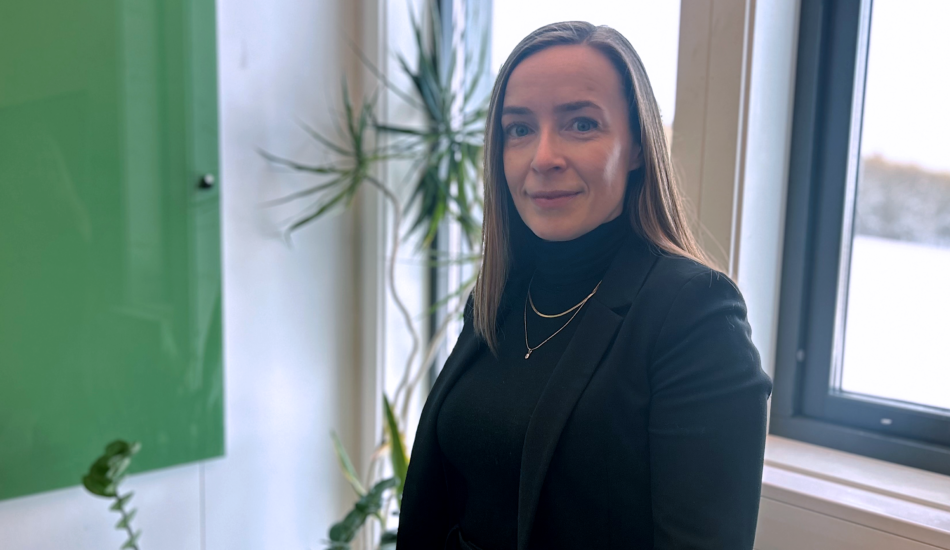INTERSECT: New geopolitics and the interaction between safety and security in petroleum risk governance
-
 Susanne Therese HansenProsjektleder
Susanne Therese HansenProsjektleder -
 Torgeir Kolstø HaavikProsjektdeltager
Torgeir Kolstø HaavikProsjektdeltager -
 Gudveig GjøsundProsjektdeltager
Gudveig GjøsundProsjektdeltager -
 Jannicke Thinn FiskvikProsjektdeltager
Jannicke Thinn FiskvikProsjektdeltager -
 Jakob Seland AmundsenStipendiat
Jakob Seland AmundsenStipendiat -
Ole Andreas Hegland EngenProsjektdeltager
-
Sissel Haugdal JoreProsjektdeltager
-
Ruth Østgaard SkotnesProsjektdeltager
-
Tor Olav GrøtanProsjektdeltager
-
Marte HøibyProsjektdeltager
-
Kristoffer Andreas AuklendStipendiat
-
Helge RingdalStipendiat
New geopolitics and the interaction between safety and security in petroleum risk governance (INTERSECT)
The goal of the project is to develop new, applicable knowledge about how to collaborate across political and societal levels and sectors to safeguard the security of petroleum infrastructure in a time of threats against this infrastructure. The point of departure is the dramatic change in the geopolitical situation in Europe caused by Russia’s invasion of Ukraine, which led to immediate concern for the security of European energy infrastructure. Following the sabotage of the Nord Stream pipelines and observations of unidentified drones around Norwegian offshore oil and gas installations, increasing the security of petroleum infrastructure in and from Norway has become a priority. A range of international, governmental, and corporate actors must now collaborate to coordinate efforts to secure critical petroleum infrastructure.
Coordination and collaboration between widely different actors around shared problems often prove challenging, due to differing mandates, focus areas, and professional cultures. INTERSECT explores how the institutional environment surrounding petroleum infrastructure collaborates—and can collaborate—on security. The project analyses challenges and opportunities for security governance across several analytical levels: international, national/governmental, sector and industry levels. INTERSECT studies the interaction and cooperation between a range of actors, including NATO, the EU, Norwegian governmental institutions, regulatory authorities, and petroleum companies. The focus is on identifying and addressing collaboration barriers related to security issues.
INTERSECT also analyses security work within individual levels, such as within companies in the industry. The state is responsible for national security, but companies own the petroleum infrastructure. For companies, the new geopolitical circumstances are significant, as they force increased attention to security and new types of risk scenarios. This entails a substantial professional and cultural shift in a sector where safety work has traditionally been heavily oriented toward safety rather than security. INTERSECT explores internal corporate adaptations in collaboration with key companies in the Norwegian sector and critically analyses the role of companies in security policy.
INTERSECT is an interdisciplinary social science project.The project is led by NTNU Samfunnsforskning AS, with Senior Researcher Susanne Therese Hansen as project manager. INTERSECT received 70 per cent of its funding from the Research Council of Norway, while 30 per cent comes from Gassco, Equinor, Vår Energi and the Norwegian Ocean Industry Authority. The project started in December 2023 and will run for a period of four years.
Publikasjoner
tilknyttet dette
prosjektet
-
Vitenskapelig artikkelStudio Apertura
Taking connectedness seriously. A research agenda for holistic safety and security risk governance
-
Vitenskapelig Kapittel/Artikkel/KonferanseartikkelStudio Apertura
Responding to A New Geopolitical Reality. NATO and EU Strategies of ‘Whole-of-Society’ and ‘Resilience’ and Implications for Corporate Actors
-
Vitenskapelig Kapittel/Artikkel/KonferanseartikkelStudio Apertura
From Organisational Culture to Communities of Practice: Organisational Culture and Resilience in a Context of Co-Emerging Safety and Security Challenges

